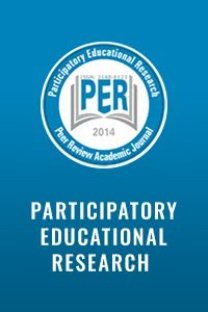The Relationship between Metacognitive Awareness of Reading Strategies and Success of Science of the 5th Grade Students in Secondary School
In this study, the relationship between metacognitive awareness of reading strategies and success of science of 5th grade students in secondary school is aimed to reveal. In this sense, using levels of students' reading strategies, the relationship between these strategies and their success of science and also whether these strategies varies according to certain demographic characteristics is investigated. Turkish version –adapted by Öztürk (2012)- of reading strategies scale which was originally developed by Mokhtari and Reichard (2002) was used for that purpose. 5 point likert scale consists of 30 items. The scale consists of three factors including General Reading, Problem Solving Based Reading Strategies and Supportive Reading Strategies. The study was conducted with the participation of 241 secondary school students in the 5th grade. The final grades of students in science classes were taken as a basis as a measure of success. In this study, methods of descriptive statistics including; frequency, percentage and averaging analysis, T-test, Anova and Scheffé tests for the detection of differences between independent variables and Pearson correlation analysis to determine the level and direction of the relationship between the two variables were performed. As a result of analyses, it was found that students have moderate levels of metacognitive awareness about each reading strategies. It was seen that students have higher levels of metacognitive awareness in terms of Problem Solving-based Reading Strategy rather than General Reading Strategies and Supportive Reading Strategies. Students' metacognitive awareness of reading strategies were found to vary in favor of girls and moderate and meaningful relationships have been identified between their awareness and success in science classes
Keywords:
Reading Strategies, General Reading Strategy, Problem Solving Based Reading Strategy, Supportive Reading Strategy Metacognitive Awareness, 5th Grade Students,
___
- Acat, B. (1996). Okuma Güçlükleri İle Okuduğunu Anlama Becerisi Arasındaki İlişki Düzeyi. Unpublished Master's Thesis. Hacettepe University Institute of Social Sciences, Ankara.
- Aktürk, A. O. and Şahin, İ. (2011). Metacognition and Computer Teaching. Selçuk Universıty Journal of Ahmet Keleşoğlu Educatıon Faculty, 31, 383-407.
- Baker, L. and Brown, A.L. (1980). Metacognitive Skill and Reading 6. (Technical report No:188), Urbana Campain: Center for the Study of Reading, University of Illinois.
- Bilgin, İ., Karakuyu, Y. and Tüysüz, C. (2008). Determining the Level of Prospective Teachers metacognition. Abant İzzet Baysal Universıty Journal of Social Sciences, 2 (17).
- Büyüköztürk, Ş., Akgün, Ö. E., Karadeniz, Ş., Demirel, F. and Kılıç, E. (2010). Bilimsel Araştırma Yöntemleri. 5th Edition, February 2010, 226- 231. Collins, M. D. and Cheek, E. H. (1999). Assessing&guiding reading instruction. New York: The McGrawHill Companies, Inc.
- Çöğmen, S. and Saracaloğlu, A.S. (2010). Adaptation of Metacognitive Reading Strategies Questionnaıre to Turkish. Pamukkale Universıty Journal of Educatıon, 28 (2), 91-99.
- Gurbetoğlu, A. (2015). Eğitim Bilimine Giriş. İstanbul Ticaret University, 86.
- Howard, B. C., McGee, S., Hong, N.S. and Shia, R. (2000). The Influence of Metacognitive Self-Regulation and Ability Levels on Problem Solving. Paper Presented at the Annual Meeting of the American Educational Research Association (New Orleans, LA, April 24-28, 2000). Eric Number: ED470974.
- Karatay, H. (2009). A Metacognitive Awareness Inventory of Reading Strategies. Abant İzzet Baysal Universıty Journal of Institute of Social Sciences, 2 (19). Mclneryney, D. M. and Mclnerney, V. (2002). “Educational Psychology-Constructing Learning”, Pearson Education Australia Pty Limited, Prentice Hall.
- Mokhtari, K. and Reichard, C. (2002). Assessing Students’ Metacognitive Awareness of Reading 17. Strategies, Journal of Educational Psychology, 94 (2)
- Muhtar, S. (2006). Üstbilişsel Strateji Eğitiminin Okuma Becerisinde Öğrenci Başarısına Olan Etkisi. Unpublished Master's Thesis. Ankara University Institute of Social Sciences, Ankara.
- Oluk, S. and Başöncül, N. (2009). The Metacognitive Reading Strategy Usage Level And It’s Effect on Science Technologies and Turkish Course Success of Primary Education 8th Grade Students. Kastamonu Education Journal, 17(1), 183-194.
- Özsoy, G. (2006). Problem Solving and Metacognition. Gazi University National Classroom Teaching Congress Proceedings, 1, 235-245. Ankara. Özsoy, G. (2008). Metacognition. Türk Egitim Bilimleri Dergisi, 6 (4), 713-740.
- Öztürk, E. (2012). The Validity and Reliability of the Turkish Version of the Metacognitive Awareness of Reading Strategies Inventory. Elementary Education Online, 11 (2), 292-305.
- Penner, Mary Eberling. (1999). Planning the Attack on Content Area Reading: The Effects of Four Metacognitive Strategies on Weak Adolescent Readers’ Confidence. Unpublished master’s thesis. Universty of Manitoba Faculty of Education, Canada.
- Selçioğlu Demirsöz, E. (2014) Metacognitive Awareness and Its Developing. Trakya University Journal of Educatıon, 4(2), 112-123.
- Senemoğlu, N. (2003). Gelişim, Öğrenme ve Öğretim: Kuramdan Uygulamaya, Gazi Kitabevi, Ankara.
- Şen, H. Şenay. (2003). Biliş Ötesi Stratejilerin İlköğretim Okulu Besinci Sınıf Öğrencilerin Okuduğunu Anlama Düzeylerine Etkisi. Unpublished PhD Thesis. Gazi University, Institute of Education Sciences, Ankara.
- Topuzkanamış, E. (2009). Preservıce Teachers’ Levels of Reading Comprehension and Usage of Reading Strategies. Balıkesir University, Institute of Social Sciences, Master Thesis, Balıkesir.
- Volet, S. E. (1991). Modelling and Coaching of Relevant Metacognitive Strategies for Enhancing University Students’ Learning. Learning and Instruction, 1(4), 319-336.
- ISSN: 2148-6123
- Yayın Aralığı: Yılda 6 Sayı
- Başlangıç: 2014
- Yayıncı: Özgen KORKMAZ
